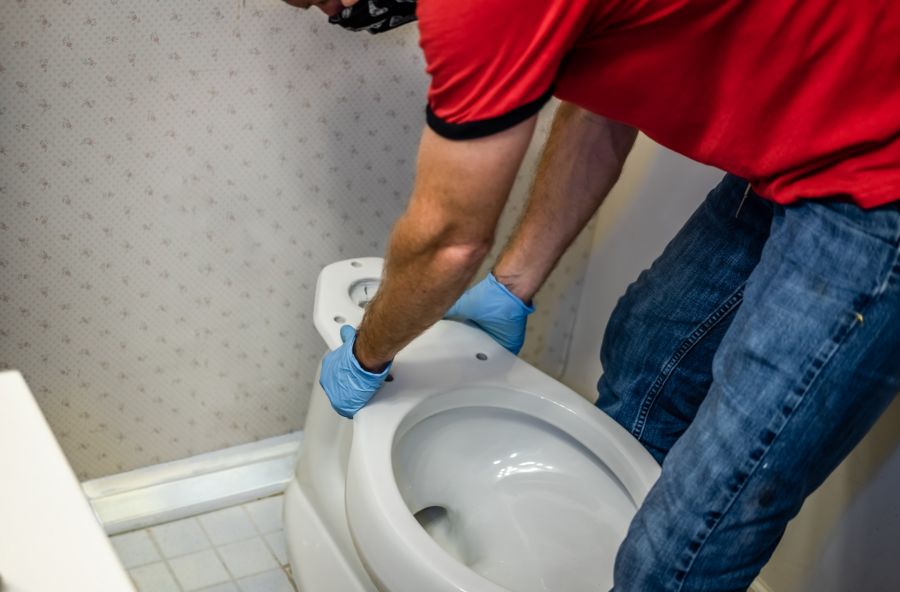
Image Source: Google
Dealing with a plumbing emergency can be a stressful and chaotic experience. From burst pipes to clogged drains, these issues can disrupt your daily routine and cause significant damage to your home. That's why it's crucial to have a plan in place for when emergencies strike. In this guide, we'll cover everything you need to know about emergency plumbing services and how to stay prepared for any unexpected plumbing problems.
Understanding Emergency Plumbing Services
Emergency plumbing services are provided by professional plumbers who are available 24/7 to address urgent plumbing issues. These services are designed to quickly resolve problems that require immediate attention to prevent further damage to your home. Whether it's a sudden leak, a malfunctioning water heater, or a sewer backup, emergency plumbers are equipped to handle a wide range of issues efficiently and effectively.
Common Emergency Plumbing Issues
- Burst pipes
- Leaking water heater
- Clogged drains or toilets
- Sewer backups
- Gas leaks
- Frozen pipes
Benefits of Emergency Plumbing Services
- Immediate response: Emergency plumbers respond quickly to your call and arrive at your property promptly to address the issue.
- 24/7 availability: These services are available round the clock, including weekends and holidays, ensuring help is always within reach.
- Expertise and experience: Emergency plumbers are trained professionals with the skills and knowledge to handle complex plumbing problems efficiently.
- Prevent further damage: By addressing the issue promptly, emergency plumbing services help prevent additional damage to your property.
- Peace of mind: Knowing that help is just a phone call away can provide you with peace of mind in the event of a plumbing emergency.
How to Stay Prepared for Plumbing Emergencies
Being proactive and prepared can make a significant difference when dealing with a plumbing emergency. Here are some essential tips to help you stay prepared:
Regular Maintenance
- Schedule annual inspections for your plumbing system to identify and address any potential issues before they escalate into emergencies.
- Keep drains clear by avoiding the disposal of items that can cause clogs, such as grease, hair, and paper products.
- Inspect your water heater regularly for leaks, rust, or other signs of damage that may indicate a potential problem.
Emergency Kit
- Assemble an emergency plumbing kit that includes basic tools like a plunger, pipe wrench, and duct tape to handle minor issues temporarily.
- Include the contact information of emergency plumbing services in your area in your kit for quick access during an emergency.
- Know the location of your main water shut-off valve and how to turn it off to prevent flooding in case of a major leak.
Communication
- Inform all members of your household about what to do in case of a plumbing emergency, including how to contact emergency plumbing services.
- Keep a list of emergency contacts, including your plumber's contact information, in a visible and easily accessible place in your home.
- Establish a communication plan with your family members to ensure everyone knows what to do and where to meet in case of an emergency.
When to Call Emergency Plumbing Services
While some plumbing issues can wait until regular business hours, certain situations require immediate attention from emergency plumbing services. Here are some signs that indicate you need to call for emergency assistance:
- Visible water leaks that are causing flooding or significant damage to your property.
- Sewage backup or foul odors coming from your drains, which may indicate a serious plumbing issue.
- Burst pipes or a sudden drop in water pressure, which can lead to extensive water damage if not addressed promptly.
- Gas leaks, which pose a serious safety hazard and require immediate professional intervention.
- A malfunctioning water heater that is leaking or not producing hot water, especially during cold weather.
By recognizing these warning signs and acting swiftly to address them, you can minimize the damage caused by plumbing emergencies and ensure the safety and well-being of your household.

